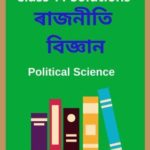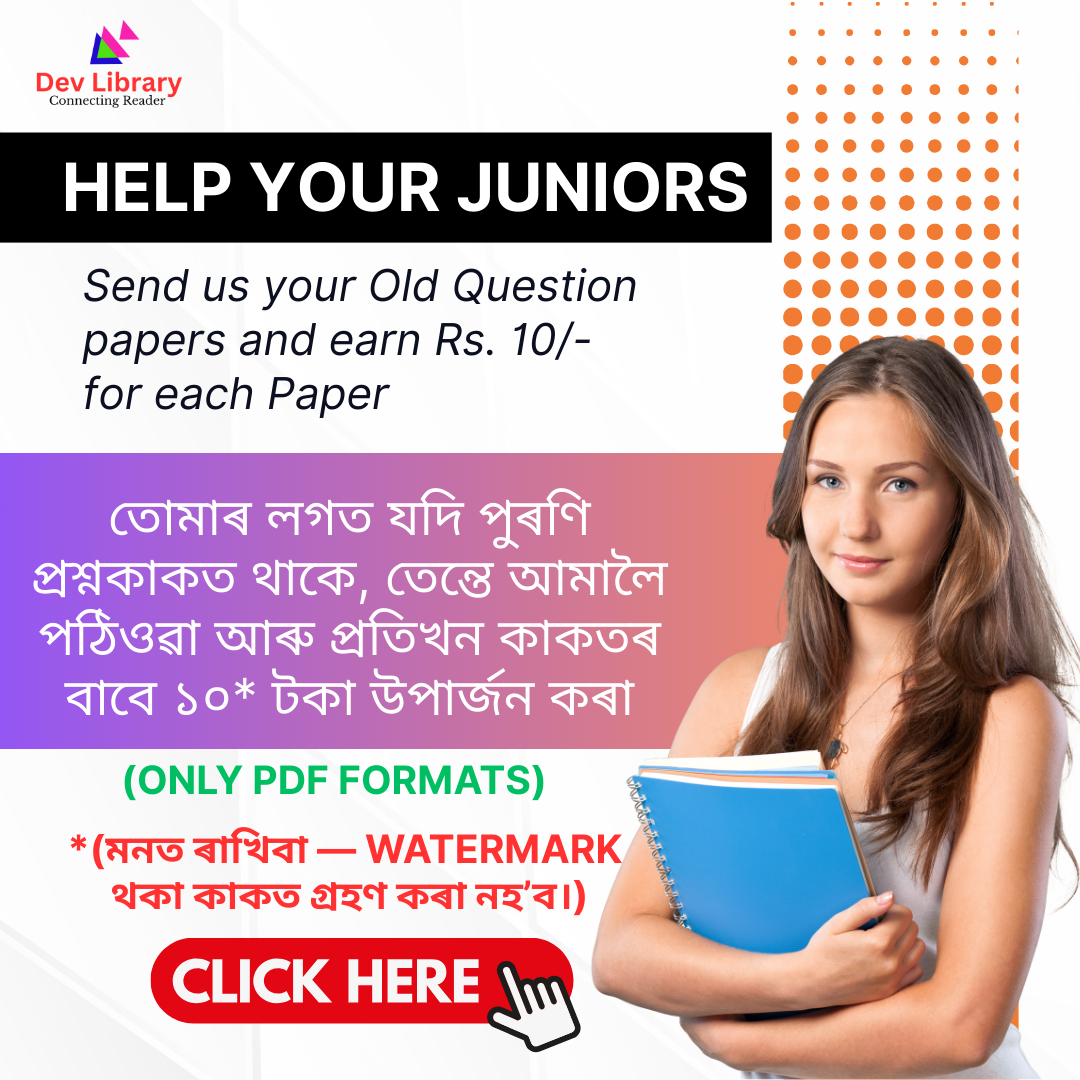Class 11 Political Science MCQ Chapter 12 Freedom Solutions to each chapter is provided in the list so that you can easily browse through different chapters Class 11 Political Science MCQ Chapter 12 Freedom Notes and select need one. Class 11 Political Science MCQ Chapter 11 Freedom Question Answers Download PDF. NCERT Political Science MCQ Class 11 Solutions.
Class 11 Political Science MCQ Chapter 12 Freedom
Also, you can read the NCERT book online in these sections Solutions by Expert Teachers as per Central Board of Secondary Education (CBSE) Book guidelines. AHSEC Class 11 Political Science Part – I and Part – II MCQ Solutions are part of All Subject Solutions. Here we have given NCERT Class 11 Political Science Multiple Choice Notes, Assam Board Class 11 Political Science Objective Type Solutions for All Chapters, You can practice these here.
Freedom
Chapter: 11
| (PART-B) POLITICAL THEORY |
| MCQ |
1. Constraints on freedom emerge from the social inequalities of:
(a) Caste, imperialism and gender.
(b) Caste, gender and colonialism.
(c) Gender, class and caste.
(d) Political bondage, caste and gender.
Ans: (c) Gender, class and caste.
2. What is the primary meaning of freedom?
(a) Control.
(b) Liberty.
(c) Subjugation.
(d) Authority.
Ans: (b) Liberty.
3. In the absence of Legal Constraints, society would:
(a) Progress.
(b) Descend into chaos.
(c) Equality.
(d) None of these.
Ans: (b) Descend into chaos.
4. Liberty of the individual prevails when there is:
(a) No policeman.
(b) No judge.
(c) Democracy.
(d) No law.
Ans: (c) Democracy.
5. The power of the government to disallow media from publishing or showing certain stories is
(a) Censorship.
(b) Dictatorship.
(c) Rule of law.
(d) Freedom of press.
Ans: (a) Censorship.
6. Liber means:
(a) Free.
(b) No freedom.
(c) Limited freedom.
(d) None of these.
Ans: (a) Free.
7. Negative freedom means:
(a) Liberty without restraints.
(b) Liberty with some restraints.
(c) Liberty with many restraints.
(d) Liberty with a few restraints.
Ans: (a) Liberty without restraints.
8. Positive freedom means:
(a) Liberty to do anything.
(b) Liberty with restraints.
(c) Only with restraints.
(d) None of these.
Ans: (b) Liberty with restraints.
9. Aung San Suu Kyi is a:
(a) Political prisoner.
(b) Human Rights lawyer.
(c) Feminist writer.
(d) Political philosopher.
Ans: (a) political prisoner.
10. Who wrote the book ‘Long Walk to Freedom’?
(a) Subhash Chandra Bose.
(b) Mahatma Gandhi.
(c) Abraham Lincoln.
(d) Nelson Mandela.
Ans: (d) Nelson Mandela.
11. Which one of the following is the safeguard of freedom?
(a) Rule of Law.
(b) No Fundamental Rights.
(c) Subordinate Judiciary.
(d) None of them.
Ans: (a) Rule of Law.
12. ‘Hind Swaraj’ was written by:
(a) Mahatma Gandhi.
(b) Pt. Jawaharlal Nehru.
(c) Nelson Mandela.
(d) None of them.
Ans: (a) Mahatma Gandhi.
13. According to whom true freedom is “freedom not to be obstructed in leading a lawful life”?
(a) Mahatma Gandhi.
(b) Mandela.
(c) JS mill.
(d) Charles Thomas.
Ans: (b) Mandela.
14. Which of the following are measures to protect freedom?
(a) Rule of law.
(b) Economic equality.
(c) Conscious public opinion.
(d) All of the above.
Ans: (d) All of the above.
15. What was the purpose of the laws created by the apartheid regime?
(a) To foster cooperation between different racial groups.
(b) To discriminate between citizens based on their race.
(c) To facilitate transportation in the country.
(d) To encourage citizens to marry freely.
Choose the correct option:
(a) Only (a)
(b) Only (d)
(c) Only (b)
(d) Only (c)
Ans: (c) Only (b)

Hi! my Name is Parimal Roy. I have completed my Bachelor’s degree in Philosophy (B.A.) from Silapathar General College. Currently, I am working as an HR Manager at Dev Library. It is a website that provides study materials for students from Class 3 to 12, including SCERT and NCERT notes. It also offers resources for BA, B.Com, B.Sc, and Computer Science, along with postgraduate notes. Besides study materials, the website has novels, eBooks, health and finance articles, biographies, quotes, and more.




